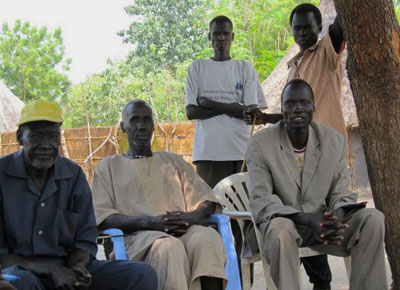
DUK PADIET, Southern Sudan —“Don’t expect that we can’t govern ourselves,” said Paul Monykuer, the former local official in Duk Padiet, a rural community of 65,000 people largely from the Dinka ethnic group. Mr. Monykuer, like many of his fellow Dinka people, is very tall, but this is not why he is respected by the people who crowded around him in the center of town, under a tree next to the police headquarters in Duk Padiet.
Mr. Monykuer was responding to a question from a journalist I was conducting research with; the journalist had suggested that if the southern Sudanese people opt for secession in the self-determination referendum in 2011, creating a new state of southern Sudan, it is not certain that life will be better or easier for the people of the South. The journalist probably asked this question because this has been a sentiment making its way around Western capitals in recent months—for the record, this is a notion that Enough has rebutted by noting that the status quo in Sudan is not acceptable in itself, so the idea that an independent South would somehow be much more volatile than the current situation is unfounded.
Mr. Monykuer didn’t stop with that opening remark. He said that his people have suffered for 50 years under a number of northern regimes, and he claimed that the National Congress Party is today “sabotaging the South again by supplying militias.” Disarmament is not the solution to insecurity in the South, the former local politician said, because the North-South border is porous. Weapons flow easily into the hands of militias like the one that attacked his people in Duk Padiet in September, he contends.
“150 percent of the population [in the South] will vote for secession [in the 2011 referendum]. We have been marginalized, and we have suffered.” When pressed further on what the referendum will bring, he said that “we will control our resources; land, oil, it is ours.” Mr. Monykuer noted that the North and South attempted to share power and wealth, and to jointly develop the South following the 1972 Addis Ababa agreement that ended the first 16-year civil war between Sudan’s North and South. “We respected that system back in 1972,” he said, but “when the North saw the South was capable, they dishonored the Addis Ababa agreement.”
The title of a well-known book on Sudan comes to mind: “Too Many Agreements Dishonored.” Mr. Monykuer seems tired of taking the northern government at its word, and he and his people in one small town in southern Sudan seem to have made up their minds on how they plan to vote in 2011.

